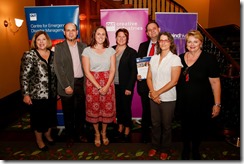It looks like 2016 is destined to start with a bang rather than a whimper: I’m delighted to announce that a major collection I’ve edited with my colleagues Gunn Enli, Eli Skogerbø, Anders Olof Larsson, and Christian Christensen in Oslo and Stockholm has now been published. The Routledge Companion to Social Media and Politics
is a 37-chapter, 560-page collection of current research on the uses of social media in political activism and electoral campaigning.
From Anonymous to the Scottish Independence Referendum, from oppositional politics in Azerbaijan to elections in Kenya, the Companion covers a broad range of social media uses …














